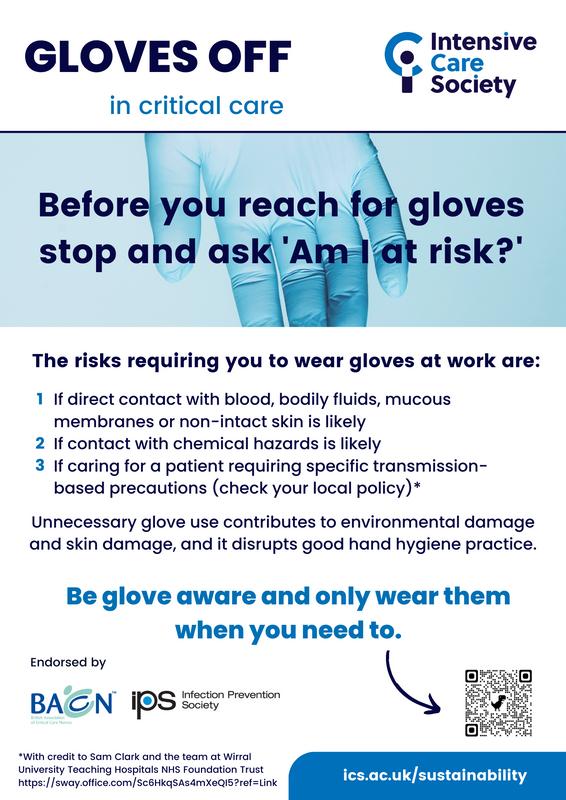
2 minute read
OurFUSICaccreditation LatestfromourNursePAG
As we celebrate International Nurses’ Day, we wanted to share some of the work and achievements our Nurse Professional Advisory Group (NPAG) have contributed to in the lastyear,aswellasouraimsfortheyearahead.
The NPAG team is involved in numerous national working groups and Society workstreams. Our contributions have been diverse, ranging from the State of the Art (SOA) Congress; NHSE Adult Critical Care workforce models; UK Critical Care Nursing Alliance workforce working group; CC3N workforce and establishment expert panel; and an HEE “Scrutiny Group” for a pilot project in SW region to explore the role of critical care TraineeNursingAssociates.
NPAG members of the Society’s Standards & Guidelines Committee have variously reviewed, co-authored, and provided endorsement for publications such as GPICs v2.1; thePalliativeandEndofLifeCareInformationStandard;Thetransferofcriticallyilladults to an outdoor space during end of life care; the Intensive Care Society and British Thoracic Society Guidance on a Model of Care for Specialised Weaning Units; the Critical Care Outreach Practitioner Framework; an HSIB report on the use of an appropriate flush fluidwitharterialline,andanHSIBworkinggroupinvestigatingtheimpactofstafffatigue onpatientsafetyandhowwemanagetherisk.
Continuedfrompage18
The All-Party Parliamentary Group (APPG) meets regularly with parliamentarians to discuss issues affecting intensive care and this year ’ s focus is workforce. As Chair of the NPAG, I attended an interactive meeting at Westminster in January with Paul Dean (consultant intensivist and the Society’s elected Honorary Secretary). We both gave a presentation related to GPICS standards, compliance and workforce challenges. I would never have imagined sitting in Westminster talking to parliamentarians about our workforcechallengeswithoutthesupportoftheSociety.FollowingthisAPPGmeeting,eight parliamentary questions about critical care workforce were tabled at Parliament, a really positivestarttotheyear!
We represent the many different roles and faces of intensive care from sister, to nurse consultant, and all the way to professor of critical care nursing. Our NPAG has members that sit in other national roles, Liz is the Vice Chair of the National Outreach forum (NOrF), and Graham is the deputy chair of the Critical Care National Network Nurse Leads Forum (CC3N) and previously was co-chair of the national ODN Directors group These roles furtherenhanceourabilitytoinfluencethenationaldirectionforintensivecareandensure ourmessageisconsistent.
WewerealsoproudtohearthefantasticnewsthatProfessorLouiseRose,ourdeputychair, was awarded an MBE for Life Lines and services to the NHS during the pandemic She was alsorecentlyelectedasthechairoftheSociety’sResearchDivision.
The UK Critical Care Nursing Alliance (UKCCNA) was formed in 2013 and our NPAG chair and deputy chair attend UKCCNA meetings and we aim to represent the Society, to be proactive and visionary about service requirements and provide quality assurance, enhancingtheservice,qualityofcare,patientexperienceandoutcomes.
A major project for the UKCCNA is the Adult Critical Care Registered Nurse Staffing Standards: Restoration & Recovery, which will be presented to NHS England this month. No spoiler alerts except to say that it is ambitious! It aims to reduce variation across the country in terms of RNs per level 3 bed, the proportion of band 5, 6 and 7, and the percentage of staff with a post registration critical care award -a significant milestone for criticalcarenursing.
For 2023, we want to build on the success of SOA, actively contributing to the different working groups and committees. Work is about to begin on Version 3 of the Guidelines for the Provision of Intensive Care Services (GPICS), and I am proud to say that I am the sectioneditorforworkforce.
We would love to see an increase in nurse membership in the Society and want to hear fromyou.Yourvoiceisourvoice,andourvoiceisyourvoice,andweneedtobelouder!









